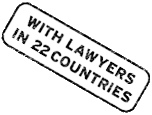
The report (in English, in French, in Italian) – The Petition (in English, in French, in Italian – Turkish)
The Joint Statement (in English) –
Invitation Press Conference (in English)
International law expressly recognizes the unique role that lawyers play in any society by according to them special protections as guardians of justice for all. Since 2010, the International Day of the Endangered Lawyer, observed on 24 January in cities, countries, and continents around the globe, has focused on countries where lawyers are hindered in their work, harassed or even in physical danger.
In 2024, the Day of the Endangered Lawyer focusses on Iran. The situation of Iranian lawyers today is extremely dire. Iranian law undermines the independence of the legal profession through restrictive procedures that prevent the issuance of lawyers’ licenses and by allowing the government to conduct background checks on lawyers who stand as candidates for the Iranian Bar Association. Iranian law also restricts the right to have a lawyer of one’s choice, as well as the right to have adequate time to consult with one’s lawyer, including for those facing the most serious punishments. In practice, there are also interferences with the principle of lawyer-client confidentiality. The control of the Supreme Leader over the judiciary and the appointment process for judges contravenes international law, as well as impacts lawyers’ professional activities.
The pressure on human rights defenders and lawyers has intensified since the protests concerning the death of Jina Mahsa Amini, a 22-year-old Iranian woman who died following her arrest allegedly for “improperly wearing the hijab”, in 2022. The conviction „for propaganda against the regime“ of lawyer Saleh Nikbakht, accused of advising the Amini family, giving interviews to the media and challenging the forensic institute’s report on the cause of Jina Mahsa Amini’s death, constitutes a clear example.
Hundreds of human rights defenders were arrested, summoned, or interrogated in relation to the protests. Many of them remain in detention, while authorities continue to harass, arrest, and prosecute those seeking accountability and justice. At least 66 lawyers have been arrested and detained since September 2022. Eleven of these lawyers have now been sentenced and 47 lawyers have been released on bail. Following these protests, the Chief of the Judiciary, Gholam-Hossein Mohseni Ejei, alongside government security entities, such as the Ministry of Intelligence and the intelligence faction of the Islamic Revolutionary Guard Corps, have been authorized to thoroughly scrutinize the legal guilds dispersed across the nation.
Given the difficult situation that Iranian lawyers face, the undersigned organisations express the following demands and recommendations:
- The Iranian government should ensure that lawyers are able to perform all of their professional functions without intimidation, hindrance, harassment or improper interference. Lawyers should not be threatened with prosecution or administrative, economic or other sanctions for any action taken in accordance with their work as lawyers. All proceedings against lawyers in connection with their professional practice should be terminated. All lawyers that are imprisoned for convictions in connection with their professional practice should be released.
- Lawyers shall not be identified with their clients or their clients‘ causes as a result of discharging their professional functions. Lawyers should not be charged for representing their clients, regardless of the client’s charges.
- Lawyers should have the right to form and join self–governing professional associations to represent their interests, promote their continuing education and training, and protect their professional integrity. The executive body of the professional associations shall be elected by its members and shall exercise its functions without external interference. The Iranian government should stop all interference with the independence of these organisations.
- These professional associations of lawyers must have all necessary means to ensure that everyone has effective and equal access to legal services and that lawyers are able, without improper interference, to counsel and assist their clients in accordance with the law and recognized professional standards and ethics.
- Disciplinary proceedings against lawyers shall be brought before an impartial disciplinary committee established by the legal profession, before an independent statutory authority, or before a court, and shall be subject to independent judicial review. There should be no direct or indirect interference by the Iranian government in disciplinary proceedings. Codes of professional conduct for lawyers shall be established by the legal profession itself through its appropriate organs, or by legislation.
- There should be no discrimination against a person with respect to entry into or continued practice within the legal profession on the grounds of race, colour, sex, ethnic origin, religion, political or other opinion, national or social origin, property, birth, economic or other status.
- The Iranian government should ensure the safety of lawyers when they are threatened as a result of discharging their functions.
- Lawyers shall not be pursued for statements made in good faith in written or oral pleadings or in their professional appearances before a court, tribunal or other legal or administrative authority.
- The Iranian government shall secure the freedom of expression, belief, association and assembly for lawyers. Lawyers should have the right to take part in public discussion of all matters, especially concerning the law, politics, the government and the administration, and to join or form local, national or international organizations and attend their meetings, without suffering professional restrictions.
- All people should have access to lawyers and legal services of their own choice, in order to protect and establish their rights and to defend them. This right should apply to all people without distinction of any kind, such as discrimination based on race, colour, ethnic origin, sex, language, religion, political or other opinion, national or social origin, property, birth, economic or other status. This should be ensured by providing sufficient funding and other resources for legal services.
- When charged with a criminal offence, the affected should be immediately informed about the charges and should have the right to be assisted by a lawyer of their own choice. Governments shall ensure that all persons arrested or detained, with or without criminal charge, shall have prompt access to a lawyer of their choice.
- Lawyers should be granted access to all information, files, and documents necessary to provide effective legal assistance to their clients. This should be applied to all courts and all alleged offences. Such access should be provided at the earliest possible time. The Iranian government should recognize that all communications and consultations between lawyers and their clients within their professional relationship are confidential.
- Lawyers should have appropriate education and training and be made aware of the ethical duties of the lawyer and of human rights and fundamental freedoms recognized by national and international law.
- No court or administrative authority shall refuse to recognize the right of a lawyer to appear before it for his or her client.
- Finally, considering the dire situation of lawyers in Iran today, the authorities shall accept an official visit of the Special Rapporteur on the Independence of Judges and lawyers in order to assess the critical situation.
List of the Day of the Endangered Lawyer Coalition Members:

